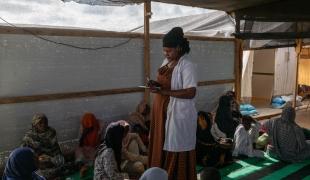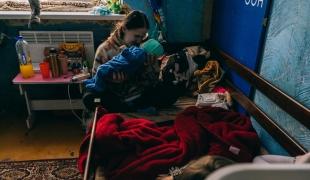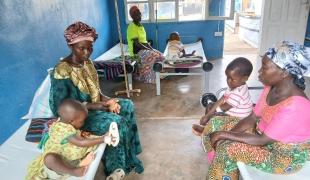Out of Sight: Informal settlements (2nd edition)
Communiqué de presse
Social marginality, obstacles to access to healthcare and basic needs for migrants, asylum seekers and refugees.
This report is the follow up of the research contained in Fuori campo - Asylum seekers and refugees in Italy: unofficial settlements and social marginalisation. It is the result of constant monitoring activities carried out in 2016 and 2017 by way of repeated field visits and in collaboration with an extensive network of local associations.
The reception system for asylum seekers and refugees, expanding to reach just over 180,000 places as of 31 December 2017, continues to be based, for the most part, on extraordinary reception structures in which services aimed at social inclusion are limited.
There are pockets marginalization in urban and rural areas across Italy. The raise in forced evictions, combined with a lack of alternative housing solutions, result in the fragmentation of informal settlements, especially in urban contexts: migrants and refugees live in increasingly hidden locations in a state of growing fear and frustration, with progressively limited contact with local services, including healthcare.
Due to administrative barriers, and despite the laws in force, migrants and refugees in informal settlements, regardless of their legal status, have less and less opportunities to access medical treatment. Hospital emergency services are fast becoming the only gateway to the Italian National Health System.
In the last two years, more than twenty people have died attempting to cross the borders with France, Austria and Switzerland. Migrants suffer repeated border rejection, often accompanied by violence. The number of people stranded at the borders and living in unofficial settlements is increasing, with limited access to basic needs and healthcare.
Throughout Italy, volunteers and activists are helping migrants excluded from the reception system, supporting them to access basic services and care. Opposition to their work has, in some cases, resulted in judicial proceedings against them.
In 2016 and 2017, Médecins Sans Frontières (MSF) strengthened its commitment to supporting migrants in unofficial settlements. In Como and Ventimiglia, a psychological first-aid program was implemented for people in transit, together with a Women's healthcare program in Ventimiglia. In Rome, primary healthcare and psychological support was set up in the disused buildings where men, women and children live in disgraceful conditions.
In Bari and Torino, MSF has worked in buildings occupied by migrants and refugees, seeking to overcome their marginalization by facilitating access to the National Health Service. MSF volunteers work alongside professionals in these activities, raising awareness on the lack of access to healthcare that marginalized migrants and refugees experience.
MSF saw Italian citizens living in informal settlements – as well as in self-organized occupations – in Rome, as marginalized as their migrant neighbors. This is not an isolated case in Italy.
The report confirms the estimate indicated in the first edition of Fuori Campo: there are at least 10,000 people excluded from the reception system, including holders and applicants of international and humanitarian protection, with limited or no access to basic needs and medical care2. The distribution of such settlements is fragmented and widespread throughout the country


